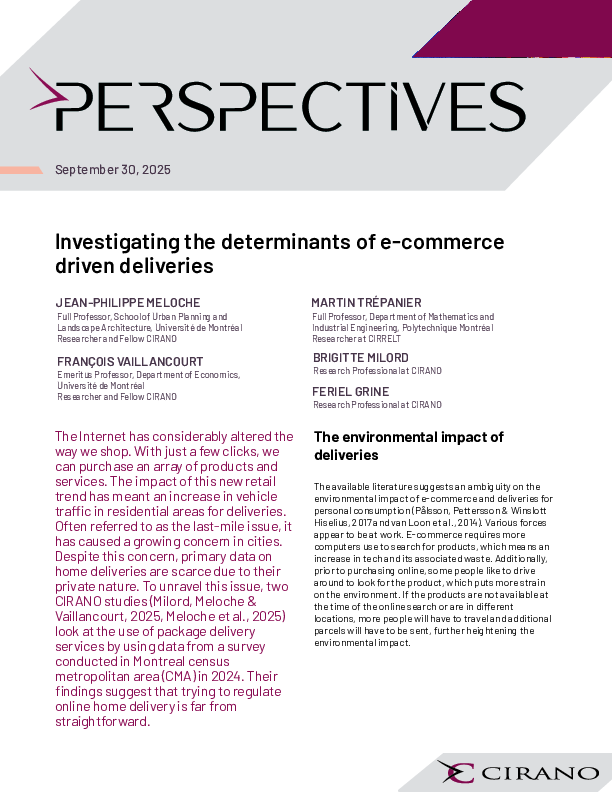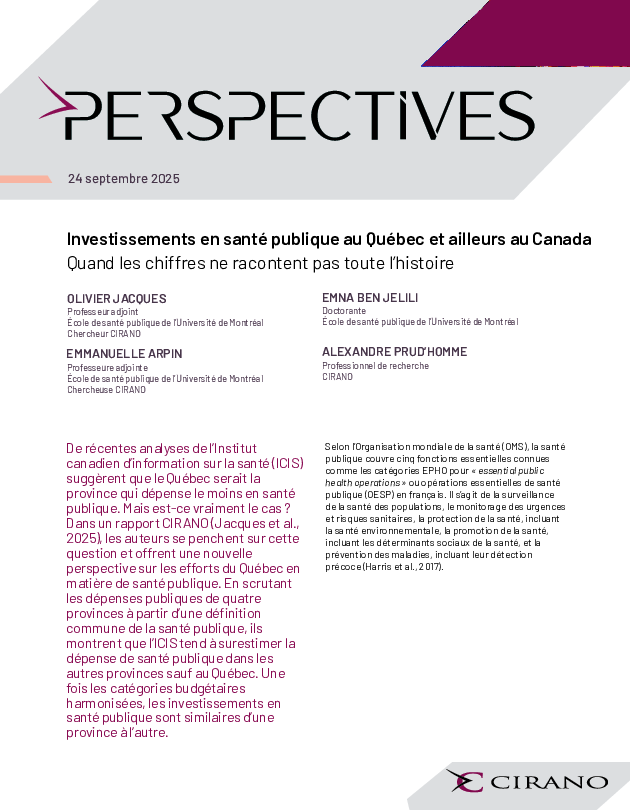Priorité à la santé : Les préférences des Québécois en perspective comparée
→ Read the article in CIRANO's PERSPECTIVES
The combined effect of rising healthcare costs and government budget constraints is limiting the resources that can be allocated to the healthcare system. Governments are therefore faced with trade-offs regarding the allocation of public funds both within healthcare systems and between different government functions such as education, pensions and income support.
In this study, based on experimental surveys, the authors examine citizens' preferences for trade-offs between rising healthcare costs, taxation and other social policies, and their preferences for a reorientation of spending within the healthcare system. Their analyses show that Quebecers tend to prioritize healthcare spending above other public policies, and to be highly dissatisfied with the healthcare system.
There is a clear link between vulnerability to disease and attitudes towards health system financing. Older people, women and those in poorer health prioritize health policies more than other respondents, especially curative care that would benefit them immediately, to the detriment of preventive care. However, this high demand does not necessarily translate into a willingness to pay higher taxes to support this new public spending.
The authors show that there is a significant ideological conflict when it comes to healthcare policies. Individuals on the left of the political spectrum want to maintain the public character of the system, limit user fees and reduce health-related inequalities, and are willing to pay higher taxes to achieve these goals. Those on the right of the political spectrum prefer the opposite. The exercise revealed that public opinion, especially in Quebec, places a high priority on healthcare.




